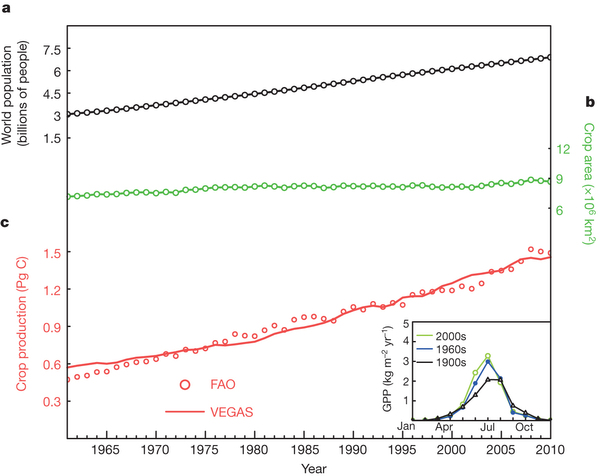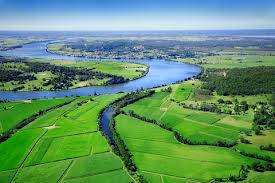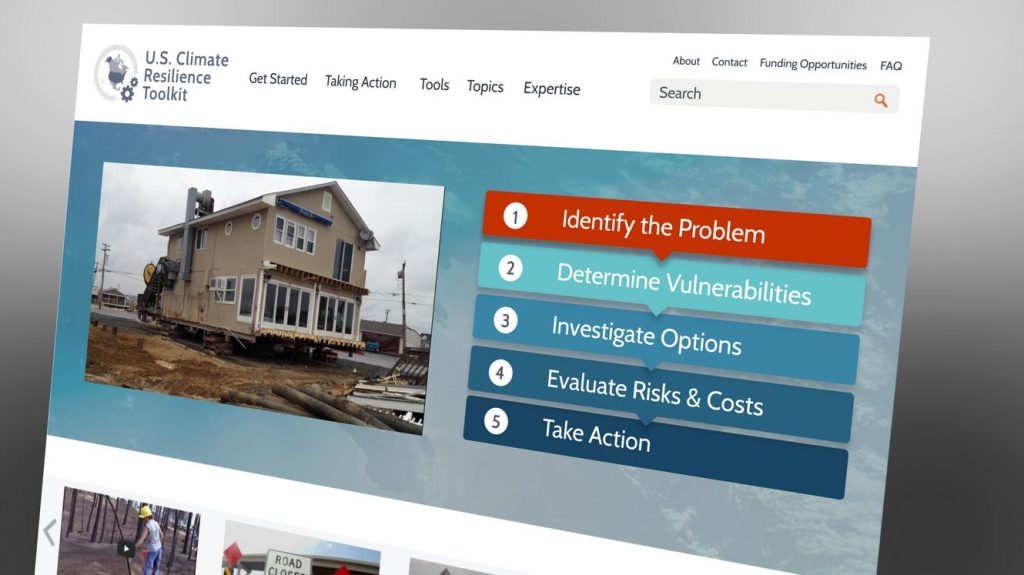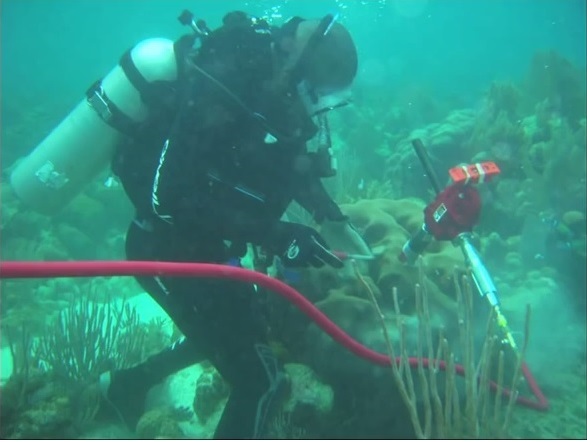Agricultural Green Revolution as a driver of increasing atmospheric CO2 seasonal amplitude
A project supported by CPO’s Modeling, Analysis, Prediction, and Projections (MAPP) and Atmospheric Chemistry, Carbon Cycle, and Climate (AC4) programs has had new research published in Nature. The paper, “Agricultural Green Revolution as a driver of increasing atmospheric CO2 seasonal amplitude,” was published in the journal’s Nov. 19, 2014 issue.







